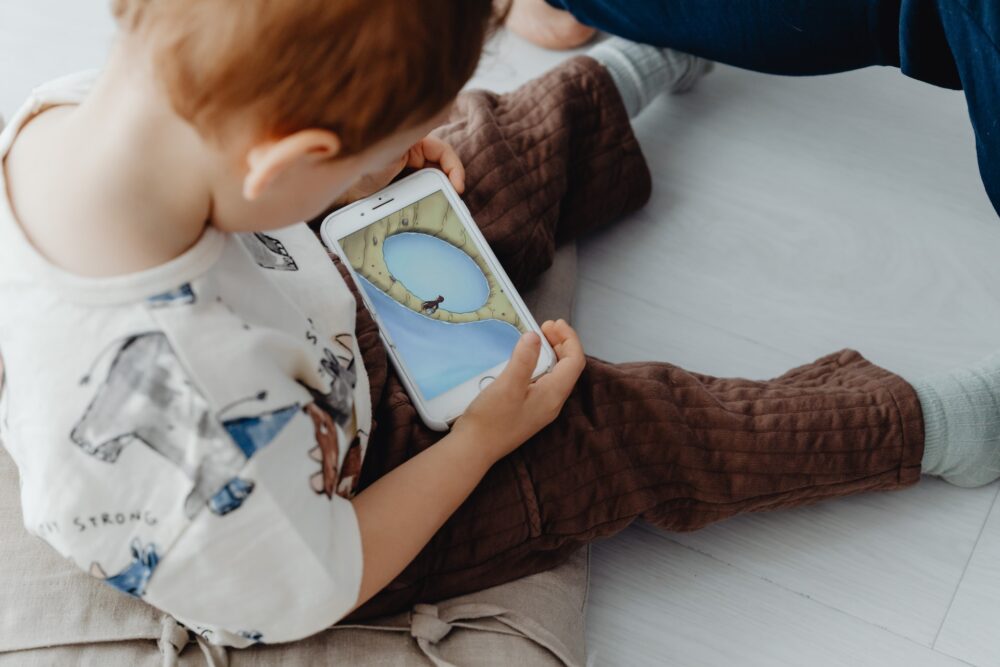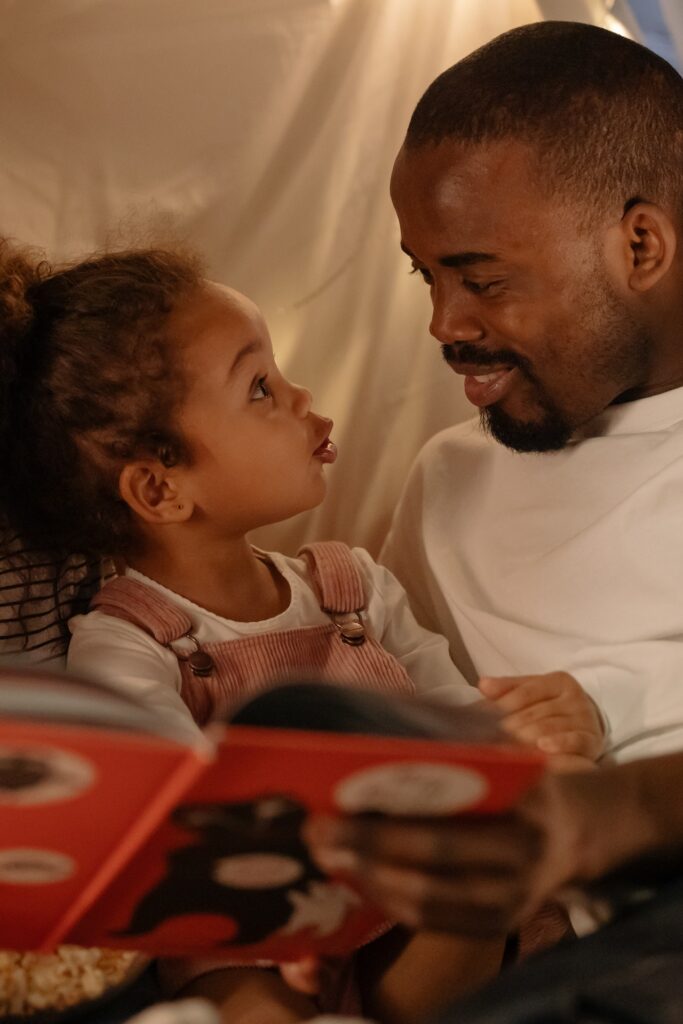It’s no secret that we’re living in a digital age where screens have become an integral part of our lives. From smartphones to tablets and TV’s, screens surround us everywhere! As parents, it’s natural to wonder how much screen time is appropriate for our children. Turning on a screen to keep your child’s focus and attention, to allow you time to complete an important task is understandable and often necessary to get anything done. However, the key is to find a balance that suits your child’s age, developmental stage and within your routine.
Let’s explore guidelines for screen time for babies, toddlers, and young children to ensure a healthy and enriching childhood.

Babies (0-18 Months)
For babies, screen time should be non-existent. This is a key developmental stage for babies and looking at screens can have a seriously negative impact on their development. Extremely brief contact for video calls with family and friends is fine, but this should be kept to a minimum.
Toddlers (18 Months – 2 Years Old)
For Toddlers, between 18 to 24 months, it is okay to introduce high-quality, educational apps or shows with close parental supervision. Screens should be kept at a distance to avoid digital eye strain and limited to 30 minutes per day. These 30 minutes will fell like gold dust allowing parents to do what they need to do!
Early Years (3-5 Years Old)
Pre-schoolers can have up to 1 hour of screen time per day, but it’s crucial to make it count. Focus on educational content that stimulates their minds and encourages creativity. Quality programmes like ‘Hey Duggee’ or ‘Sesame Street’, educational games, and interactive apps can provide a valuable learning experience.

Primary School Kids (6-10 Years Old)
As children grow, they can handle more screen time, but it is important it should remain balanced. Experts recommend no more than 1-2 hours of screen time per day for this age group. Encourage a variety of screen activities, including educational games, reading apps and creative content.

6 Tips to Help Manage Screen Time
No matter how old your child is, it is extremely difficult to avoid screens in the current world that we live in. Here are 6 tips to help manage screen time no matter what age your child is:
1. Set Limits: Establish clear rules for screen time, such as 30 minutes for Toddlers, 1 hour for Children between 3-5 year olds and 1-2 hours for Primary School Kids.
2. Prioritise Quality Screen Time: Encourage children watching educational and age-appropriate content during their recommended screen time.
3. Watch Together and Discuss: Make time to sit down and watch programmes together with your child, where possible. Use this time to discuss with your child what they are watching and playing.
4. Encourage Outdoor Play: Balance Screen Time with physical activities and outdoor play, even more so for babies and toddlers.
5. Lead by Example: Be a role model for responsible screen use. Children often mimic their parent’s behaviour, so it is important they do not always see you scrolling on your phone.
6. Screen-Free Zone: Designate certain areas of your home, like the dining room and bedroom as screen-free zones and encourage face-to-face interactions and conversation!

In conclusion, finding the right balance of screen time for babies, toddlers and young children requires thoughtful consideration. It’s about maximising the benefits of technology while encouraging the magic of real-world experiences and connections. By following these guidelines and adjusting them to fit your child’s unique needs, you can help them navigate the digital age with wisdom and balance, ensuring a bright and enriching childhood.



